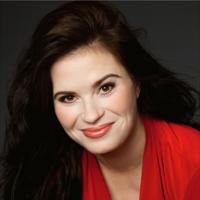Alexander Technique Overview: Foundational Principles, Current Research, and Significance in Voice Training
Wednesday 16th October 2024, 2:00 PM - 4:00 PM (London Time)
The Alexander Technique is a re-educative process embracing the connection between mind and body. For over a hundred years, the principles advocated by F.M. Alexander have been taught to alter injurious habits, reduce chronic tension, identify more efficient movement patterns, improve vocal timbre, and minimize performance anxiety. This introductory course will identify and discuss core principles of the Alexander Technique, its potential benefits to voice users, as well as practical applications beyond better posture.
There is evidence in voice pedagogy literature to suggest that many singing and acting teachers believe that lessons in the Alexander Technique benefit the voice. Postural improvement is the most commonly cited reason for studying the Technique, however, many Alexander teachers contend that this view represents a limited understanding of the Technique.
This overview will be presented in lecture format, with interspersed workshop elements, to encourage exploration of the how over the what. At the conclusion of the course, participants will have a preliminary understanding of the Technique’s precepts, and how the Technique may benefit those who wish to improve their singing or speaking. Existing Alexander Technique/voice research will also be discussed.
Michele Capalbo
Michele Capalbo is a performer, adjudicator, lecturer, teacher and researcher. A Canadian singer with over two decades of international performance experience in opera and concert, her specialty is the music of Verdi and Puccini.

Attend this course for as little as £22 as part of the Voice Professional Training CPD Award Scheme.
Learn MoreSorry, this is an archived short course...
We have plenty of upcoming short courses coming soon. See details of some of them below or look at the full list of short courses.


Tuesday 3rd March 2026
5:00 PM - 7:00 PM
(London Time)
Sex differences in VOICE!

Dr Richard Lissemore
This two-hour workshop, led by performer, articulatory phoneticist, and voice physiologist, Dr. Richard Lissemore, will examine in detail the role that biological sex plays in the perception and pedagogy of singing voices. We'll consider how parameters such as anatomy, physiology, articulation, resonance, and radiated acoustics influence the perceptions and pedagogical decision-making of singing teachers.

Wednesday 4th March 2026
1:00 PM - 2:00 PM
Wednesday 11th March 2026
1:00 PM - 2:00 PM
Wednesday 18th March 2026
1:00 PM - 2:00 PM
Wednesday 25th March 2026
1:00 PM - 2:00 PM
Wednesday 1st April 2026
1:00 PM - 2:00 PM
Wednesday 8th April 2026
1:00 PM - 2:00 PM
(London Time)
Learn to Coach RP and SSBE – a Certificate in Accent Coaching

Louisa Morgan
This six-week course is an opportunity to learn about both Received Pronunciation and Standard Southern British English. Rather than a course in learning how to speak RP/SSBE (there are many brilliant available courses for this already), this course is about learning how to coach it.

Thursday 5th March 2026
1:00 PM - 2:30 PM
Thursday 12th March 2026
1:00 PM - 2:30 PM
(London Time)
Acting Emotion: Perspectives from the Masters

Louisa Morgan
Stanislavski said, “our artistic emotions are, at first, as shy as wild animals and they hide in the depths of our souls.” Michael Chekhov said, our bodies should be like a “sensitive membrane, a kind of receiver and conveyor of the subtlest images, feelings, emotions and will impulses.” And Meisner said we should be “living truthfully under imaginary circumstances.” Join Louisa Morgan in this 2-part course as she explores a range of well-known acting practitioners to investigate what they believed (or believe) about emotion and how they approached it in their work. She'll compare their work to see where they align and where they diverge.
